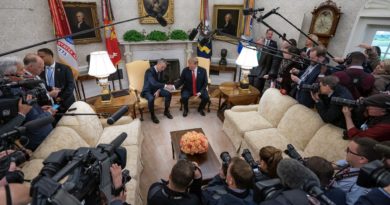The Europeans placed before their responsibilities. A Russian Dilemma
(BRUSSELS2) With successive and intensifying crises in Ukraine, the Middle East, Syria, Iraq and Libya, in the Central African Republic and in Nigeria, Europeans are now faced with their responsibilities. At the time of the political return - the Ministers of Foreign Affairs begin their traditional half-yearly informal meeting in Milan and the Heads of State and Government will meet on Saturday in Brussels - a new reflection must be done.
The time for responsibilities has come
The Europeans can no longer in fact clear themselves of a multinational angel or an American umbrella. The policy of checkbooks and humanitarian aid, of (beautiful) discourse based solely on the statement of (good) principles, or even of participation in an international operation, more or less directly under cover of the UN, seems insufficient today. Europe and its Member States are now called upon directly by governments - kyiv, Kurds, Central African Republic, Mali - to provide them with financial support and/or direct military equipment. The time has come for choice. A choice that is not without risk or without asking many questions.
What to do in the face of state no mans land: intervene or let it happen?
Military or political intervention is not, in fact, a panacea. Looking at some of the current crises – Iraq, Libya, Ukraine – it is clear that they result, at least indirectly, from intervention decisions followed (Iraq 2003) or taken in part by the Europeans (Libya 2011, Ukraine 2014). The Iraq war in 2003 like the intervention in Libya in 2011 certainly destroyed tyrannical powers. They have not been followed by the hoped-for effects, in particular the advent of a democratic, stable and peaceful power. Conversely, non-intervention harbors different but equally important dangers. The Syrian example proves it. By allowing a conflict to continue, bloody but apparently limited within the borders, Syria has today become a fixation abscess for a new generation of terrorists who have a desire to export their fight outside the Syrian borders. The victories of the Islamic State in Iraq and the Levant (EIIL or ISIS according to the English acronym) prove it. The number of European fighters in Syria and Iraq is worrying. Well Named.
Facing Russia, confrontation or partnership?
Faced with what must be called "a war" in Ukraine, and the involvement of Russia, European states are divided. A division which is not only of circumstance or interest and which reappears regularly. Because there are clearly different objectives, two antagonistic strategic lines for Europe vis-à-vis Russia.
One of them wants to roll back Russian power as much as possible by continuing the policy begun in 1990, which coincided with the fall of the Berlin Wall, the end of the alignment with Moscow of the Pact of Warsaw and the collapse of the USSR. It is no longer a question of containing Moscow but of regaining room for manoeuvre, of "liberating" the countries and populations which are in Moscow's orbit, or even of arriving at a shift in power in Russia. This trend is embodied by the countries of northern Europe - from east to west - the Baltic States, Sweden, Poland and the United Kingdom.
The other line considers Russia as a neighbour, not very pleasant, but one that must be put up with, a world power that must not be underestimated and is sometimes useful, a country with which it is necessary to maintain political, economic and commercial ties. notables. The idea of a change of power, of the functioning of Russia is not envisaged, except in the longer term, and without hurting what is considered to be "the Russian soul". This line is represented by the states of the center south - Germany, France, Italy, in particular, but also Belgium, Finland, Austria, etc. It is between these two visions that Europe must decide and in fact arbitrate.
(Nicolas Gros-Verheyde)
